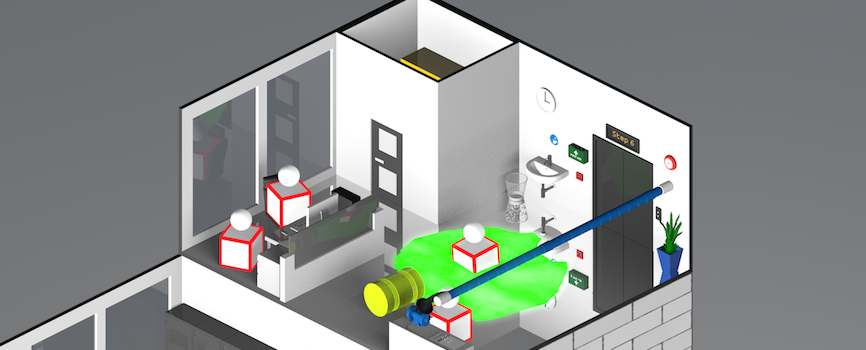The Mental Health crisis in Care – What can be done?
Posted 6 years ago

The Mental Health Crisis in Care – A worker stands alone under the spotlight
It’s never been a surprise that the care sector has a high number of workers suffering from poor mental health, but recent reports have highlighted just how severe it is. Now it’s devastatingly clear that the care sector is actually suffering from a mental health crisis.
The latest stats from the ONS have revealed that in a 7 year period, more than 300 NHS nurses took their own lives – a 23% increase on the national average. While the figures were first released in October 2018, they were brought to light over the weekend by the national press, sparking calls for action from our health leaders.
“These figures are a cause of great concern to the nursing profession, every life lost is heartbreaking for their friends, family and colleagues. It is never inevitable and we must all redouble our efforts to support nursing staff.”
Mental health training and more support are now being called for from the victims’ families.
The shocking statistics surrounding mental health in the care sector…
- 71% of carers have poor physical or mental health.
- 84% of carers suffer with stress, 78% suffer with anxiety and 55% report that they have suffered from depression as a result of working in care.
- 38% of young carers report having a mental health problem, yet only half report receiving additional support.
Stats taken from the Mental Health Foundation.
The problems facing the care sector
Poor wages – A mother of an NHS nurse who took her own life in 2017 revealed that her daughter was left with just £6 to live on each month and worked at a pizza restaurant and a care home to make ends meet. “They’re working all hours God sends doing a really important job. Most of them would be better off working in McDonald’s. That can’t be right.”
Not enough embedded support – Care and charity sectors are really suffering from a lack of investment into staff mental health and wellbeing. Many care and charity employers may offer support in the form of helplines or counselling, but the support is not embedded in the workplace itself and this is where the real problem lies. If support isn’t available from within the workplace then workers are much less likely to seek it.
Long hours – Whilst most nursing or caring jobs are advertised at around 36 hours per week, this is rarely the case and many nurses often face gruelling 14-hour shifts and in cases of emergency, it has been known for nurses to work for up to 24 hours a day.
‘Bullying and toxic cultures’ – Bullying and toxic cultures have also been reported within the NHS, so much so that an independent review is being carried out after raised concerns over a long-standing ‘bullying culture’. The Guardian also recently released a report that found Bullying and Harassment within the NHS is costing around £2bn every year – money that could be better spent on patient care.
What can be done?
More support – Managers and senior staff within any organisation need to be approachable. One of the biggest challenges concerning mental ill health is the stigma attached to it, and if managers and other work colleagues aren’t approachable then workers will not speak about their mental health issues. Mental Health First Aiders are becoming a very popular option for workplaces looking to put mental health support at the forefront of their business and we have 2 here at iHasco, who do an incredible job! There are many providers of MHFA training out there but MHFA England are the only licensed provider.
Awareness training – Awareness training is a simple, yet very effective way of promoting good mental health, as well as raising awareness of the signs and symptoms of poor mental health – and how to manage and improve it. Mental ill health is responsible for around 13% of all sick days taken in the UK, yet so many people are unaware of the signs.
All staff should be better educated – and therefore more empowered – to help themselves and each other.
Although the change has to come from within the organisation, sourcing help from outside can make a big difference. At iHasco, we want to play our part in helping to remove the stigma surrounding mental health – by offering support and a listening ear to our own staff, by talking openly about it on our social platforms, and through our training courses, including our Mental Health Training programme designed specifically for those working in the care sector.
Stress and wellbeing spaces – There are also many little things that can be implemented by you right now, among them are de-stress spaces.
You can encourage your staff to take breaks outside so they remove themselves from the space that’s causing them stress.
You might have an unused room in your workplace that’s gathering dust… why not turn it into a wellbeing space that staff can escape to for a few minutes if things are getting too much? This can make a HUGE difference to someone who is feeling down or stressed.
You could provide pens, paper and a ‘Stress Awareness Wall’ for staff to write on, giving them an outlet for their troubles and a chance to communicate with their colleagues (anonymously if they wish).
Or you can pose the question to your staff themselves – what helps them when they are feeling down, anxious or overwhelmed? And what is within your power to help them?
Related articles



Opt-in to our newsletter
Receive industry news & offers
